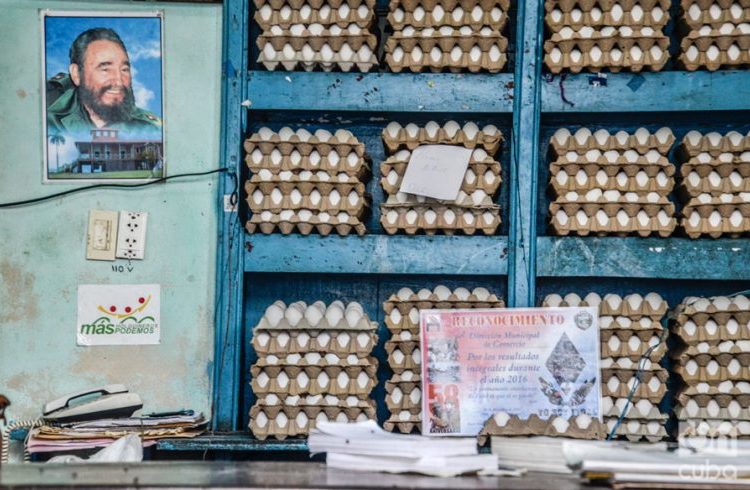In a few hours Cuba will wake up with a post Castro government. It wasn’t because of Washington, which except for a direct invasion by its legions, tried it all; nor was it Moscow’s tragedy; nor the domestic mistakes; nor all this together; it was rather because of an agent of changes that doesn’t go on holidays: time.
On the avenues, the propaganda banners are in grey, a parabola that the country is holding its breath waiting for the slogan that will guide the generational changing of power created by the founding fathers of the Revolution.
The expectations among the Cubans are not so much about the possible figures of the cabinet, almost all of them hierarchically foreseeable, but rather about how the new administration will handle the process of ongoing reforms, explicitly about an “updating.”
Seeking retrospective and present approximations to the current scenario, the most speculated, observed and decisive of the socialist project, OnCuba knocked on the door of Juan Valdés Paz (1938), 2014 National Prize for Social and Humanistic Sciences.
Skillful in heterodoxies, a follower of Guevara when not accepting to be an obedient official and, above all, loyal to a coherence that has allowed him a territory of lucidity never annexed by courting temptations or auto-da-fes, Valdés Paz receives us in his home, located in one of the zones of deep Havana.
We are in Pogolotti, a model of the Cuban working class of the early 20th century, later turned by some into a sounding blazon of urban tough guys, with eroded streets and underground adventures, one of so many environments that the official narrative calls neighborhoods with “social disadvantages.”
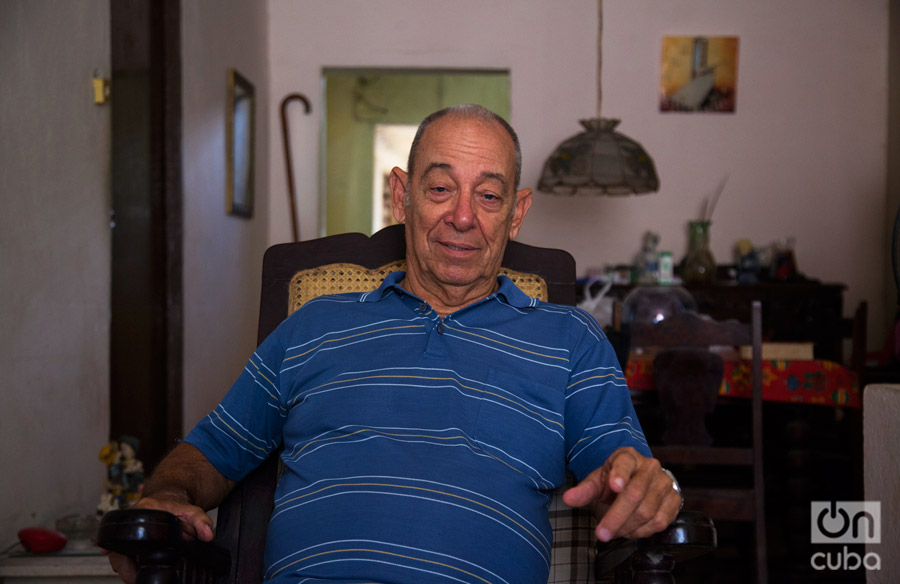
Let’s go to the origins. What did Jean Paul Sartre see when he traveled to Cuba in 1960 to affirm that he was in the presence of a direct democracy?
Sartre wouldn’t have said that of us in the early 1970s. But it was very understandable that he would have been impressed in the early 1960s, and not just him, but many others as well.
It was an entire mobilized people, Fidel would spend hours and hours on television or in the public square lecturing the population, and you could consider that that was a popular consultation and that therefore it was an expression of direct democracy. The consultation turned into an assembly in Revolution Square in an act of direct democracy, although those who were gathered there were not sufficiently representative of the population. But in any case it was amazing.
There could be technical discussions about the representativeness, but in 1959 the polls gave the Revolution a 98 percent backing.
An amazing consensus….
The consensus remained a majority almost all the time because of the massive emigration of the national bourgeoisie and half of the professional middle classes, which led to the domestic dissent to permanently decrease.
In a hypothetical return of Sartre to Cuba, what would the French philosopher appreciate now?
A parliamentary system, in which for the National Assembly to play its role it would be necessary to eliminate the figure of the Council of State.
Please explain yourself….
The Council of State substitutes the assembly during its recess. Therefore, we will never have an operating assembly that exercises what the Magna Carta says is the supreme State organ, which can exercise the three powers. The numbers say so: for each law approved by the Assembly, there are between four and five Decrees approved by the Council of State. In the end we are governed by the Council of State.
There are some who are advancing that there will be a separation of posts at the highest level….
What still exists was resolved ad hoc for Fidel Castro’s leadership, which was continued by Raúl, and it is that the president of the Council of State is also the head of government, which even in other experiences of real socialism has not existed. Not in China, nor in Vietnam, it didn’t even exist in the Soviet Union.
I believe that is one of the questions that has to be resolved: separating the State leadership from that of the government.
There already are experimental scenarios of such a scheme in the two provinces that were part of Havana….
It seems that everything boiled down to creating a vice president of the Assembly to take care of the administration. Thus a complete separation is still not going to be resolved. I imagine that they are deriving all that for the constitutional reform that has just been approved in the fifth plenum of the Central Committee.
There are some who are speculating that that constitutional reform would bring about the direct election of the President of the Republic, abolishing the current second degree system.
In the design of the current Cuban political system there are no personal decisions, all the decisions are shared, in the Assembly as well as in the Council of State and the Council of Ministers.
This collegial character of decision making is, in my opinion, a component of a greater socialist democratic development. Therefore, the president who will come will be subject to the rule that the decision making is collegial. Then speaking of presidential government would be a step backwards, when we hope that everything be the most collegial as possible.
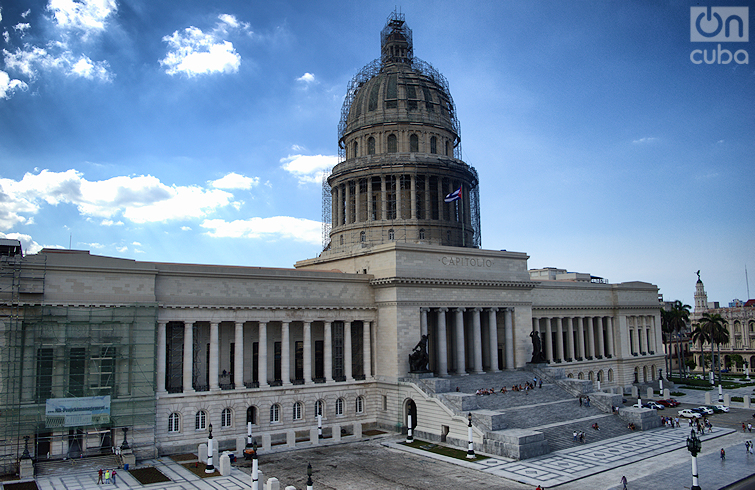
Returning to the parliament. How do you conceive it in the future?
Smaller, more professional and operative; that it be permanently in session; a Head of State elected by the Assembly and a government cabinet, with its Prime Minister, also approved by the National Assembly.
And who would elect the prime minister?
The Head of State or the Assembly could propose him/her. Or as is going to occur for an indefinite time in history, the Party proposes to the Assembly a head of government and a head of state. The rest of the government members, as now, don’t have to be deputies.
But the Party, as the law prescribes, does not intervene in proposing candidates in the elections.
To me it doesn’t seem out of place that the Party propose candidates and laws to society, given that it is a vanguard party that must play its role in the political system. When defining itself as the higher leading power of society and of the State, I get the idea that the Party is equidistant from society and from the State, and in that idea of equidistance one can suppose it represents society in the face of the State and legitimizes the State in the face of society.
In the letter it is like that, but in reality….
What we have in the historic experience of the entire real socialism is a collusion of the Party with the State. But it is not what is prescribed. Certainly, the Party supplants the authorities in many of the country’s levels. Especially in the provinces and locally. We have waged a long battle for the separation of the Party and the government, which is still ongoing.
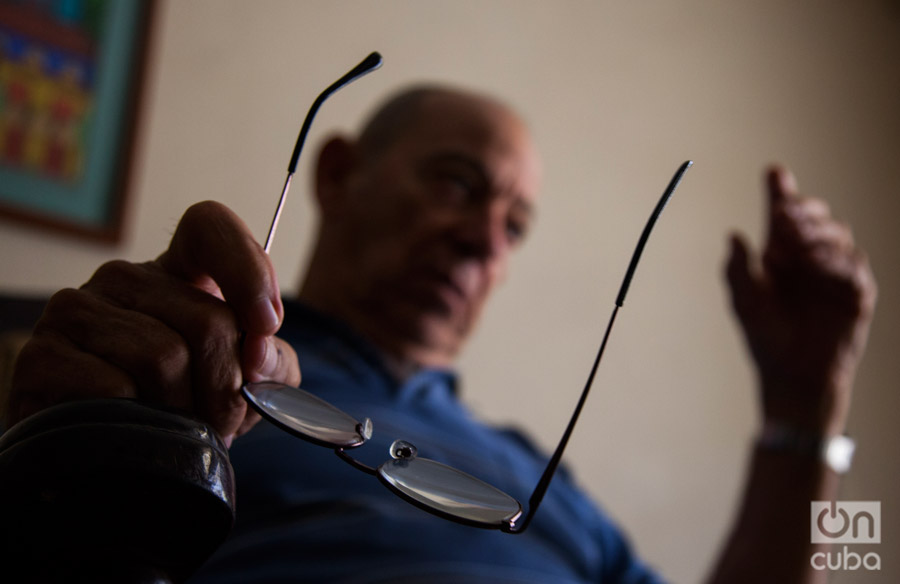
The thing is that many times it’s about the same protagonists. There exists ubiquity and slyness….
But that doesn’t prevent you from being able to make the rules explicit to achieve that equidistance of the Party from the State.
How?
For example, if the comrade we are going to have starting April 19 is born with the rules of limitation of mandates, a revolution has taken place within the Revolution, because that creates a totally different dynamic in Cuban politics. But if in addition to the rules of limitation of mandates you add two more rules: age limit, below or above, to carry out the post – even the Church retires bishops at the age of 75 – and in addition you place the rule of the incompatibility of posts, that you cannot be a member of government if you are a member of the assembly; or that a Party or mass organization leader cannot be a deputy and vice versa…. In short, nothing prevents making those rules that would introduce another revolution in the Cuban political system without changing it. Moreover, it would make effective the principle of the rendering of accounts.
When there are no rules on incompatibility, the Party ensures or wants to ensure its line in the State, placing its leaders in state leadership posts. But the role of the Party is a political-moral leadership, using the Granma language about the State.
Then the Party cannot assume that it is supraofficial….
That is in the field of the discussion. It would be necessary to overcome the stage in which the Revolution turned its leaders into State leaders.
***
A week before the meeting with professor and researcher Juan Valdés Paz, the newspaper Granma, the organ of the Communist Party, published a summary of the 5th Plenum of the Central Committee.
The document, looked at with a magnifying class by our interviewee, revealed serious difficulties to implement the reforms and remitted projections of constitutional changes awaited by the citizenry.
In the hands of Valdés Paz, the Party message now serves as leit motiv to continue the interview with this professor of the anti-dogmatic department of philosophy of the University of Havana. Its doors were closed in 1971, together with the magazine Pensamiento Crítico, as a preface of the ominous grey quinquennium and the mixing with the Soviets.
What depth could the constitutional reform have?
The constitutional reform that has been announced, according to what will be reformed, will take a referendum or not.
And what lines would be susceptible to reform?
Some areas of the current Constitution would have to be modified to render an account of the economic changes, because part of the Guidelines do not fit in the current Constitution.
For example, non-agricultural cooperative ownership, just the agricultural and livestock one, or the totally foreign ownership, self-employment, etc. Then, it is necessary to modify the Constitution, which is why the 400 urban cooperatives that were approved are going through an experiment. Everything that is public ownership can only be handed over in usufruct, because the current Constitution does not allow the privatization of any public asset.
What lines cannot be removed?
Homero Acosta – who, watch out, is a rising star – pointed out that there are two things that are not going to be modified in the current Constitution: the irreversible character of socialism and the leading role of the Party.
And for when would the changes in the Magna Carta be ready?
When it is said that the constitutional reform is being studied, that means sine die, but what’s most important is that the Party has made a commitment to the reform, that there is no going back. Another interesting point is that the Plenum says: the reform will take into account our constitutional history.
Is it because they are thinking of the 1940 Carta?
In the 1940 one and in that of 1901. The plenum leaves open the possibility that those experiences can be placed on the table. The experiences of China and of Vietnam and of the Latin American neo-constitutionalism in cases like Bolivia, Ecuador and Venezuela could also be considered.
Is the fact that the National Assembly is returning to the National Capitol building a symbol that the reform would be committed and respects certain civic values of the previous republic, despite its deplorable mistakes?
We have had the only parliament in history that hasn’t had a venue.
In March 1959 the revolutionary government organized in the gardens of the Capitol building an agricultural and livestock fair. It filled the “holy” place, where the statue of the Republic was, with cows and hogs. It was clear that there was no longer a parliament, a symbol that that was the Republic.
Afterwards the Capitol was used as a building for diverse public and ministerial functions, until an extraordinary character, Eusebio Leal, appeared, who with his abilities and good relations with Fidel and Raúl was able to start rescuing the heritages little by little.
We are entering a period of maturity, unfortunately when we are about to die, that allows us to appreciate even with more equanimity figures that weren’t revolutionary like Jorge Mañach, a bourgeois liberal who made contributions to the country’s culture; or like those made to the 1940 Constitution, very advanced for the times and in the Latin American context, etc.
The Cuban economic reform is a reform created because of the pressing needs and one of its collateral effects is the increase of the pattern of the already existing social inequality. Recently when you were among the public in Último Jueves, you asked the panel: “Up to what point of social inequality is Cuban society willing to withstand?” For many old communists and fighters that reform is sitting Cuba on capitalism’s lap, because, unfortunately, it would seem there are no alternatives to capitalism as a source of wealth.
It is a very difficult matter. If the discussion of the economists is read, they are concerned about speeding up the process of economic reform because the current model is not an answer to the country’s development, knowing that many of those reforms have social consequences, but they place them in parenthesis. That group includes the more and less liberal. The Guidelines give the changes certain washers, giving the idea that there will always be socialist limits.
Do sparks go off about many doubts when speaking of limits?
When it is said that limits will be established to the accumulation of wealth, a limit is being established for the reform. When the social policy is defended, another limit is being established, because that means that it is necessary to ensure that the public expenditure does not drop or that a part of the investment has to be made in social policy. They are all setbacks for the economic reform’s speed.
We have a certain model in mind. Some are more Chinese; others more Vietnamese; others more autochthonous. I believe it is fair to have the latter, to not copy. Now then, it happens that the autochthonous models we have made have been a disaster.
A society of equals is a utopia?
Equality is a utopia. There is always a pattern of inequality. The only thing that is equal is Mathematics, Logic and Law. What the Revolution does is minimize the pattern of inequality, less wealthy and less poor.
The pattern of inequality says that the distribution of goods and incomes is stratified. In the 1980s we had a Gini coefficient of 0.20; we already have 0.40. In Latin America it is over 0.60. In the next 10 years we are probably going to end up with between 0.45 or 0.46.
At what country’s level does that place us?
Perhaps Costa Rica in Latin America; or Switzerland in Europe. But two problems are involved here. The first is factual. The fact that the pattern of inequality increases means that the egalitarian society communism has promised is very distant. Our transition is marching with a notable inequality and we are rectifying five decades of egalitarianism. Let’s remember that the entire previous policy has been to strengthen a minimum pattern of inequality. When widening the pattern of inequality, we are changing the characteristics of the economic model and in addition another discourse has to be sought to legitimize that inequality.
It is possible to deal in greater detail with that pattern of inequality….
A bigger pattern of inequality is not such a serious problem, in my opinion, as the situation of the inferior term of inequality has. If someone has 1,000 bucks and another has 500, there is inequality between the two. The problem is when someone has 1,000 and the other 100 or none.
Effective protection policies for the more vulnerable groups would have to be designed….
If you establish a permissive policy so that a greater accumulation of incomes in certain groups can be produced, and there isn’t a parallel policy of greater priority against poverty, you are allowing a pattern of inequality that not only is increasingly more unequal, but rather the term inferior is increasingly more screwed up.
Poverty is a data sociologists handle. It is not recognized in the official discourse. If poverty is not spoken of, then we don’t establish an express policy for poverty. No society has resolved the problem of poverty, not even the wealthiest, even having policies against poverty.
The “Guidelines” assumed that a greater pattern of inequality was necessary, guaranteeing a social policy so that all of society was protected in terms of access to basic goods, reserving the subsidy for the most vulnerable groups. For example, eliminating the ration card that subsidizes the products, and go on to subsidize the persons. However, I remember that that proposal of this guideline had less consensus.
The problem always lies in where to establish the group you are going to protect.
The growth of the high-income groups, through the so-called spill effect, would be improving the life of the poor.
No. It creates some jobs, some of them better paid than those of the state sector, but that’s how far it goes. A neoliberal proposal of the economy is the spill of the private sector.
It has been said there is a political horizon waiting for the arrival of these capitalized groups….
High incomes make it possible to privatize your life. With the accumulation of incomes and of wealth, some unquantifiable, more or less legal, these groups gain political power, a capacity of rupture. They start creating a public health for themselves, an education for themselves, because the surplus they accumulate allows them to create a second economy for them, and allows them to influence politically, later or earlier. We have a problem because the high-income groups are going to invent a country for themselves. No solution for the rest of the Cubans’ problems can come from that.
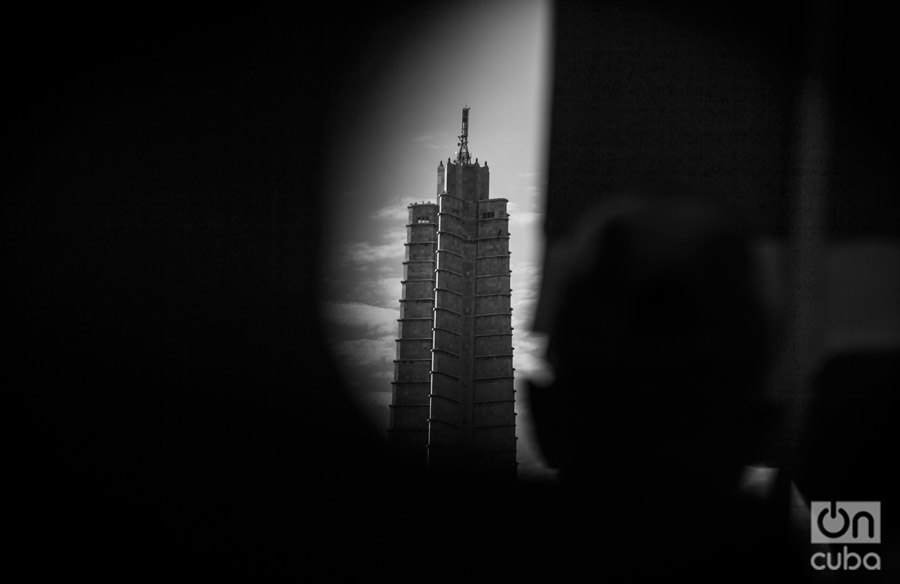
Given the circumstances and the setbacks, those groups shouldn’t go beyond pocket magnates.
Socialism can create regulations, but until now the reaction has been administrative: establishing limitations, not giving legal status, sending inspectors, many of whom are bribed, etc. The State has to create the conditions so that economic activity it has accepted as necessary develops. The way it is, the black market, corruption, informal employment without rights is thriving….
On the other hand, up to what point one can accumulate is being discussed. The State could, at a certain limit of growth, allow that such businesses be associated to the state sector. Then the accumulation of wealth is no longer a certain private enterprise, but rather a joint one.
What isn’t a formula is the one we are using now. You can’t accept on the one hand that you need a private sector (which should never have disappeared) and treat its actors as if they were not legal entities, with rights and duties, economic agents that you need and that meet a function of growth, of efficiency and of accumulation.
What is the strategic piece of this jigsaw puzzle?
Once you accept that the economic model of Cuban socialism needs the existence of a private and cooperative sector, the problem is how you coordinate it with the socialist economy so it doesn’t turn into an anti-socialist power.
A desire politely blown into the Cubans’ ears by Obama….
The U.S. government is betting on the private sector becoming anti-socialist, opponent, dissident…. To avoid this, there has to be a coordination. The Cuban Revolution has a successful experience to resolve that problem, which is the policy with the farmers. Emerging from the Agrarian Reform, a part of the farming sector has been the only private agent that has existed throughout the entire Revolution. It would be necessary to start from that experience and seek how this new emerging private sector is going to be coordinated with the State so that it wants socialism and so that there is a community of shared interests.
Are the lessons from Eastern Europe valid for Cuba?
We are still very far from the reforms that in their time were made by the Eastern European socialist countries, which did not sink because of the economic reforms, but rather faced the incongruences of their political system. The political class’ corruption, the Party’s inoperativeness, the privileges, the distancing from the masses, the lack of real democracy. That’s what sank them. Some continue saying there was a CIA conspiracy. All that is foolish.
To be continued…
See all of OnCuba’s coverage on the subject:

